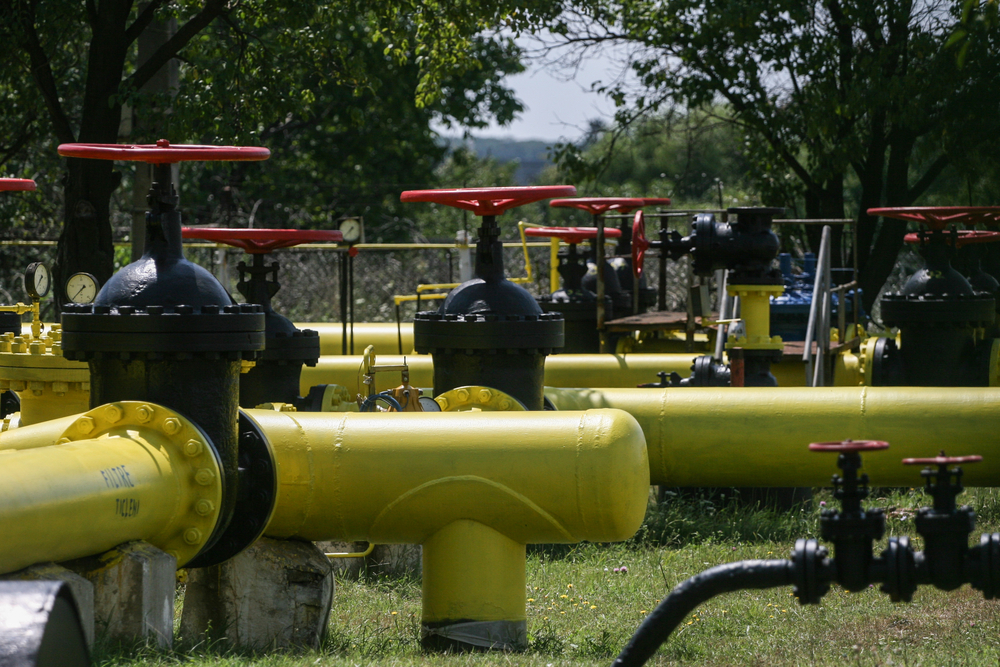Romania: a key player in the Energy Union for the security of natural gas supply?

In 2015, Maroš Šefcovic, Vice President of the European Commission for Energy Union, was writing about Romania as being «at a crossroads - both in strategic and physical terms.

The first European country to have exported its gas is (re)defining its role as an important regional energy hub. Indeed, for this country, which was the first in Europe to introduce electric street lights and to build a natural gas storage, the Energy Union can be the expected chance to stand up among the leading states in the EU, leaving behind its “laggard” status.
The Energy Union is one of the main priorities of the current commission. Adopted in 2015, the Energy Union sets out an integrated vision of the energy sector, based on three pillars : security, efficiency, and competitiveness, for all of which countries must meet their objectives and coordinate their actions in order to achieve a true energy union. Romania’s strategic geopolitical position ( «a bridge between Eastern Europe, such as Ukraine and Moldova, and Central Europe») and its energy independency recommend it as a pivot-actor in the region with respect to the security of gas supply. However, to which extent is Romania prepared to assume a leading role in the making of the Energy Union, more precisely in ensuring the security of gas supply?
Romania can become and influential actor in insuring security of gas supply through diversification of sources and routes and through enhanced interconnectivity in the Central Eastern and Southern-Eastern Europe region. Its potential in gas production also recommends it for the position of a regional energy hub. However, this potential can only be unleashed if Romania implements in a timely fashion the internal market rules, namely regarding competitiveness, transparency and legal certainty.
The first part of this paper will explain that in order for Romanian gas market potential to become a strategic asset for the Energy Union to rely on, competitiveness must be improved. The second part will discuss Romanian major gas network infrastructure projects, making the case for Romania’s potential to become a key player in the Energy Union by boosting security of supply through new routes and increased interconnectivity with other member states and Energy Community members. In the end, this paper will draw on the challenges that Romania still needs to overcome in order to become a reliant partner for the EU on energy security issues.
> Read the article in the Sciences Po Review of Public Affairs, No. 2, August 2018

Available in:
Regions and themes
Share
Related centers and programs
Discover our other research centers and programsFind out more
Discover all our analysesAI, Data Centers and Energy Demand: Reassessing and Exploring the Trends
The information and communication technologies sector today accounts for 9% of global electricity consumption, data centers for 1-1.3%, and artificial intelligence (AI) for less than 0.2%. The growing energy demands of cloud services first, and now AI workloads (10% of today’s data centers electricity demand), have exacerbated this trend. In the future, hyperscale data centers will gain shares amongst all kinds of data centers and AI will probably account for around 20% of data centers electricity demand by 2030.
Unlocking India’s Energy Transition: Addressing Grid Flexibility Challenges and Solutions
India is rapidly scaling up its renewable energy (RE) capacity, adding 15–20 GW annually, but the ambitious goal of 500 GW of non-fossil capacity by 2030 is at risk unless the pace accelerates.
Europe’s Black Mass Evasion: From Black Box to Strategic Recycling
EV batteries recycling is a building block for boosting the European Union (EU)’s strategic autonomy in the field of critical raw minerals (CRM) value chains. Yet, recent evolutions in the European EV value chain, marked by cancellations or postponements of projects, are raising the alarm on the prospects of the battery recycling industry in Europe.

The New Geopolitics of Energy
Following the dramatic floods in Valencia, and as COP29 opens in Baku, climate change is forcing us to closely reexamine the pace—and the stumbling blocks—of the energy transition.









